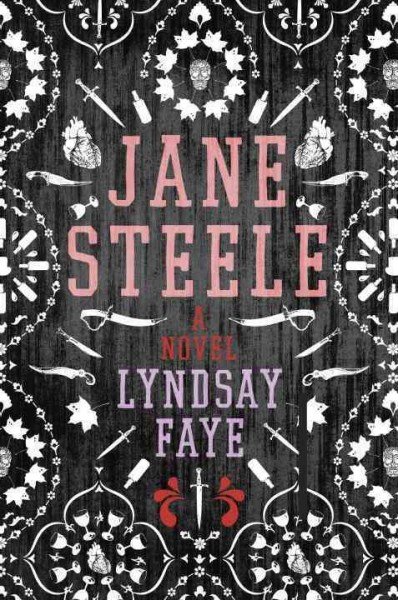 Jane Steele follows its namesake as she makes her way through England in the 1800s as an orphan. Reminiscent of Jane Eyre, Steele is orphaned, sent to boarding school, becomes a governess, and falls in love with the man in charge of her ward. That is where the similarities between these two novels end. In this story, Lyndsay Faye takes Victorian England and a female protagonist and every Brontë sister, Austen-esque cliché of the era and turns them into a compelling, contemporary story of loss, love, and the drive to survive.
Jane Steele follows its namesake as she makes her way through England in the 1800s as an orphan. Reminiscent of Jane Eyre, Steele is orphaned, sent to boarding school, becomes a governess, and falls in love with the man in charge of her ward. That is where the similarities between these two novels end. In this story, Lyndsay Faye takes Victorian England and a female protagonist and every Brontë sister, Austen-esque cliché of the era and turns them into a compelling, contemporary story of loss, love, and the drive to survive.
I am tempted to write a book review that falls back on my English major training and compares and contrasts with Jane Eyre, but that wouldn’t do this book justice. In an attempt not to write a literary analysis, here we go: Jane Steele as a character is very aware of herself and of her audience; the book is told as an autobiography. And starts with her first murder. Don’t worry I’m not spoiling anything yet, the story opens with: “Of all my many murders, committed for love and for better reasons, the first was the most important.” (1)
Spoilers under the cut.
If you couldn’t tell from above the cut, I loved this book. As a narrator, Jane isn’t going to try and trick you, she is one of the few first person narrators I trust to tell me the whole story as best as she can, this is her life and she’s not going to hide any of it. Explain parts of it away—maybe, but never hide.
Faye creates a Victorian Killer who has set out to protect those she loves through her newfound power over others’ lives, all while she struggles through living in Victorian England, as a girl, and all of the expectations put on her to fill that role.
“Reader would you prefer me to have felt remorse in the aftermath of my second slaughter?
Though the brutality of the act sent fearsome tremors through my small frame for days and weeks afterwards, never have I regretted ending the life of my headmaster.” (96)
Jane remarks on her actions with an air of nonchalance, she chooses not to allow what happens to her— or what she chooses to do about it—to change the direction her life is moving. Committing murder is going to give a person at least a moment of pause, and Jane is no exception. She has taken the time to reflect on her actions, and reasons before telling readers her story.
When she goes to the police to turn herself in, becoming the hero of the story, readers find that not all of the men that Jane encounters think of her as less than. In fact, a number of them believe her even when she speaks ill of the other wealthy men in her life. When she confesses the murders she has committed and accuses these men of attempted assault against her and her classmates, the police officer believes her.
Growing up in a world where women have to prove beyond a trace of doubt that men in their lives have used their power to coerce or assault them, this was almost surprising to read. Her word is taken at face value and the officer in the story believes her.
Recommendation: I loved this book, and I know I’m a sucker for Victorian historical fiction of any sort. If you are also a sucker for Brontë, Austen-esque, lady-driven fiction, then go to your local library, your favorite bookstore, somewhere, anywhere, find this book. Read this book. Love this book.
This is the second book review of Jane Steele I’ve seen recently! It inspired me to read Jane Eyre and now I’m convinced to read Jane Steele too! 😊
LikeLike